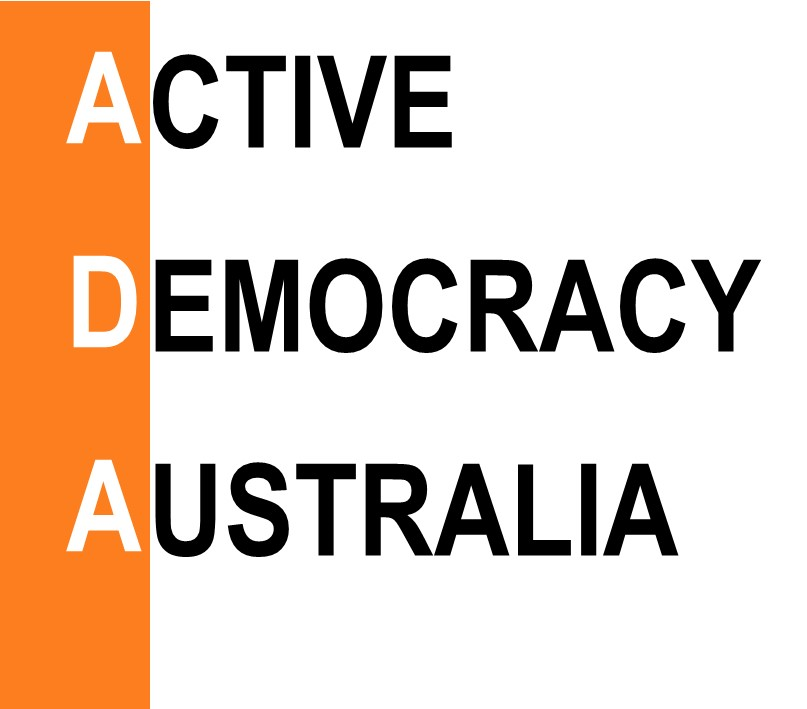Enabling voters to learn more about policy
Good policies should be informed by evidence. It’s not sufficient to go with what feels right or what’s popular. Governments need to draw on evidence, but voters, and groups representing voters, should be informed by evidence too, because voters elect governments.
However, voters have lives to live, and they may not be very interested in politics, while policy can be very complex, and the pros and cons of different policy options across all policy areas adds up to a huge body of information.
But electorate groups can help here. You can provide policy information, either in writing or through events you organise, such as speakers’ nights, deliberative forums and policy summits. This will make it easier for voters to be better informed, and thus more likely that more of them will be.
This is likely to involve a lot of work, but you can do it in cooperation with other electorate groups, because the policy issues you’re considering will often be the same. Groups can jointly do this work, or each can focus on a different policy area or activity, and then share the results.
To gain the necessary policy information check out relevant websites or consult experts. But what sources of information can be trusted? People will argue about this, but our suggestions are as follows:
- Policy information that comes out of university research will generally be evidence-based, because academic research tends to be rigorous in its research methodology, which needs to be transparent and is ‘peer-reviewed’, that is, checked by other academics.
- Some ‘research institutes’ or ‘policy institutes’ generate evidence-based policy information, but you need to be careful, as they may be set up by industry lobby groups, political parties or other partisan organisations. If they have an official connection with a university they are probably more reliable.
- Look for policy information that cites published, peer-reviewed sources for that information.
- Avoid unsubstantiated claims and anecdotal evidence (‘My neighbour saw…’).
- Note which websites or publications publish the most reliable information, and draw on those. Examples of reliable sources of policy information are The Conversation and the Grattan Institute. The Conversation is a collaboration between journalists and academics that seeks to make research data and expert opinion accessible to a broader audience, and it is backed by the CSIRO and several Australian universities. The Grattan Institute seeks to present independent evidence-based policy information, and is supported by the University of Melbourne among other bodies.
It’s also a good idea to look at policies in countries comparable to Australia, such as other OECD countries. If you’re not sure which countries to look at, think about what you value. If you value environmental sustainability or wellbeing, equality or high health standards, look at country-by-country comparisons of these – they’re easy to Google – and see which countries are doing best. Then find out what kinds of policies these countries have adopted to achieve this.
What about voters’ personal experience? Isn’t this evidence too? Well yes, and it’s really important to draw on the lived experience of constituents in your electorate, but you have to be careful in two ways:
- You need to ask: Is it typical? Is it the whole story? Are there other voters – perhaps more of them – whose experience supports very different policy options?
- You have to be wary about just accepting people’s views about what has caused experiences they have had, which may not be based on evidence. Unemployment, for example, is often blamed on immigration, but evidence shows that, while immigrants do take jobs, they also create about as many jobs because of the additional demand for goods and services they generate.
Of course, the evidence for good policy is often incomplete, because research funds are limited, the world changes over time, circumstances differ from place to place and person to person, and the effectiveness of new policies will not be known until they are tried out. So the evidence you are looking for may not exist, or it may not be very applicable to the setting for which it’s being considered. But that doesn’t mean that you don’t look for policy evidence. Seek it out and bear it in mind, but do so with caution, and be prepared to revise your views when new evidence is available.
If there’s a big gap between what the evidence indicates in a particular policy area, and what many group participants or voters in your electorate group believe, then you need a process to deal with this. Organise a deliberative forum on the subject, or have informal discussions with opinion leaders in your group who support views that seem to be contrary to evidence. If necessary, focus on other policy areas first. The group should only advocate publicly for policies that have general support among participants, as these participants are its greatest asset and the sources of its legitimacy. They need to be onside.
The different ways to enable voters to learn more about policy
You can do any or all of the following:
- Include articles or links about particular policy areas on your website or Facebook page.
- Arrange information nights on a specific issues or policy areas, with expert speakers and time for questions and discussion. This can an in-person event or online.
- Arrange deliberative forums.
- Suggest to participants in your group that they may like to arrange ongoing (perhaps monthly) small group discussions on specific policy issues. Members choose topics to discuss, and then one or two members seek out material online and send links to this to the other members about two weeks before the session, so they can read the material and then discuss it.
Connect
